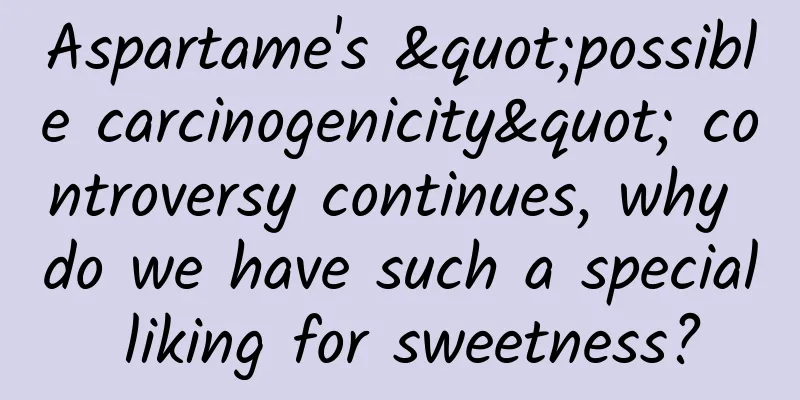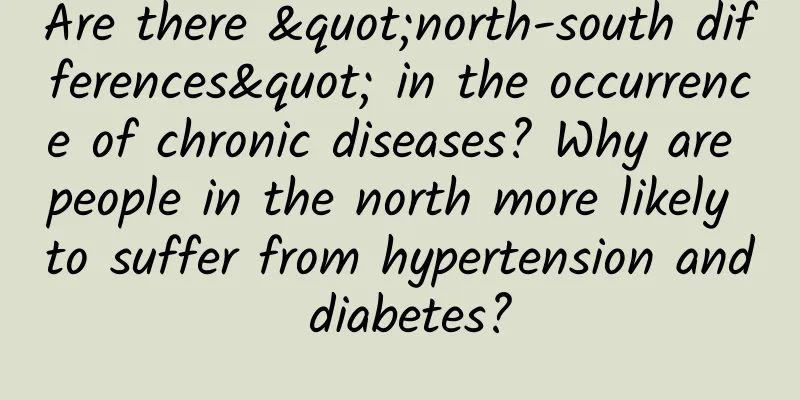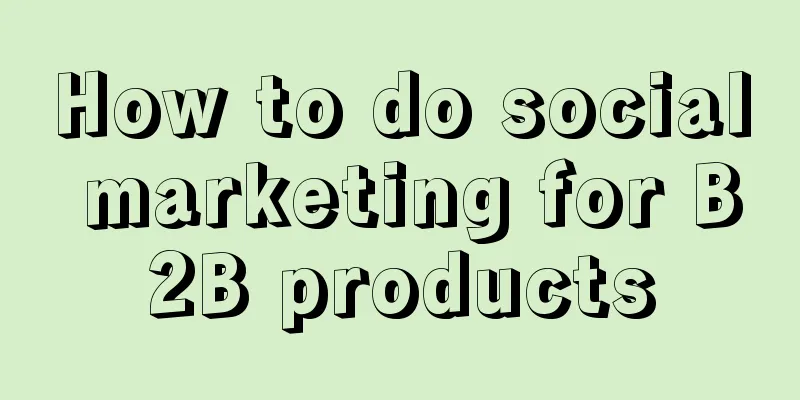Aspartame's "possible carcinogenicity" controversy continues, why do we have such a special liking for sweetness?

|
On July 14, 2023, the assessment report on the health effects of the sugar-free sweetener aspartame, jointly led by the WHO International Agency for Research on Cancer (IARC), the WHO and the FAO Joint Expert Committee on Food Additives (JECFA), was finally finalized. IARC cited "limited evidence" of carcinogenicity to humans and classified aspartame as a Class 2B carcinogen (possibly carcinogenic to humans). JECFA reiterated that its daily allowable intake (ADI value) is 40 mg per kilogram of body weight. Image source: World Health Organization official website The evaluation results of the two major WHO agencies are both independent and complementary, and the results are as we expected. In today's society, sugar is increasingly seen as the "antonym" of health, while sugar substitutes have become synonymous with health. The WHO's official announcement of aspartame has also made more "weight loss enthusiasts" view sugar substitutes as "a scourge". It has also set off another wave of discussions about the relationship between sugar substitutes and health. We have already published a special article on this (see: "Cure" or "Carcinogenic"? The health truth behind the aspartame controversy). Facing the joint assessment report of the two major WHO agencies, we need to think: Why is everyone so concerned about aspartame in such a huge "family of carcinogens"? Does sugar and healthy life have to be an "art of trade-offs"? 1. Does the official announcement by the WHO mean that aspartame has been sentenced to “death”? 01. Are the Class 2B carcinogens confirmed by IARC serious? IARC divides carcinogens into three categories based on the level of evidence of carcinogenicity: Class 1 confirmed carcinogens (clearly carcinogenic to humans), Class 2A carcinogens (evidence of carcinogenicity from animal experiments), Class 2B carcinogens (have a certain possibility of causing cancer), and Class 3 carcinogens (insufficient evidence of carcinogenicity). (Copyrighted image from the gallery, no permission to reprint) Although aspartame has been classified as a Class 2B carcinogen , the two agencies' assessments both believe that there is limited evidence that aspartame causes cancer in humans, limited evidence of carcinogenicity in experimental animals, and limited evidence of the possible mechanism of causing the cancer. Other substances in the same category include kimchi, motor vehicle exhaust, and mobile phone radiation. 02. Is aspartame safe? my country's authoritative institutions respond Image source: National Food Safety Risk Assessment Center official website The National Food Safety Risk Assessment Center also issued a statement on the 14th in response to the assessment results of the two major WHO agencies, stating that aspartame is a food additive approved for legal use by the Codex Alimentarius Commission (CAC) and China, the United States, the European Union, Canada, Australia, New Zealand, Japan, South Korea and other countries. The National Food Safety Risk Assessment Center and the National Cancer Center conducted a safety assessment based on the latest assessment results of JECFA and the consumption situation of Chinese residents. Aspartame can be guaranteed to be safe if used in accordance with China's current standards . 03. Look at it rationally and don’t worry The carcinogenicity level is not equal to the carcinogenicity intensity. IARC only classifies the carcinogenicity level according to the strength of the carcinogenicity evidence. Alcohol and aflatoxin are both classified as Class 1 carcinogens, but their carcinogenicity intensity and toxicity are obviously different. In addition, there is a probability problem of cancer. Alcoholic beverages and betel nuts have long been listed as Class 1 carcinogens, and even the most common red meat is listed as a Class 2A carcinogen. However, in real life, no one will stay away from mobile phones, red meat, and kimchi because of this. As long as they are consumed in moderation according to the dietary guidelines, there will be no problem. 2. From "sugar" to "sugar substitutes", let's talk about our definition of health 01. How did sugar substitutes come about? Many people know that excessive intake of sugar can increase the risk of chronic diseases such as obesity, dental caries, and type 2 diabetes, which is not good for health, so reducing sugar intake has become a scientific consensus for healthy eating. However, it is human nature to love sweets, which is determined by human genes. Eating sweets can bring us a lot of happiness. This is also the internal motivation for people to realize the harm of excessive intake of sugar. Low-calorie or zero-calorie sugar substitutes are popular all over the world. (Copyrighted image from the gallery, no permission to reprint) Foods including sugar-free beverages, sugar-free chewing gum, ice cream, yogurt, cakes, biscuits and chewable vitamin tablets may contain sweeteners such as aspartame. 02. The relationship between sugar substitutes and health has always been controversial Sugar substitutes are sweet and provide little or no energy, which seems to be a great choice for weight control, but is it really so? Although authoritative assessment agencies such as JECFA have concluded that there is no problem with the safety of sweeteners, this does not mean that you can eat as much as you want. The relationship between sugar substitutes and health has always been controversial. As early as May this year, the World Health Organization issued a new guideline on non-sugar sweeteners, suggesting that most people should avoid consuming non-sugar sweeteners such as acesulfame potassium, aspartame, saccharin, sucralose, and steviol glycosides. The suggestion is also to remind people not to rely too much on sugar substitutes. WHO guidelines recommend not consuming non-sugar sweeteners to control weight or reduce the risk of non-communicable diseases. What's going on? Scientists' experiments have found that rats fed artificial sweeteners are fatter than rats fed sugar. Subsequent studies have shown that when rats taste sweetness, they will adjust the secretion of gastric juice according to the sweetness, and the pancreas will also adjust the secretion of insulin. Artificial sweeteners disrupt this normal feedback mechanism, and rats will eat more food to make up for this feeling of deficit, so the normal energy balance is broken, and the mice become fatter. (Copyrighted image from the gallery, no permission to reprint) 03. Sugar and health, are they natural enemies? If you have a strong willpower and are not tempted by sweetness, drinking sugar-free drinks will certainly help you lose weight more than drinking sugary drinks. However, the reality is that people are often unable to control their self-control in the face of delicious food, and they can easily consume more food. Therefore, in the long run, replacing sugar with non-sugar sweeteners will not help control weight. Long-term and excessive use may also increase the risk of type 2 diabetes, cardiovascular disease, and cancer. According to the evaluation conclusion of JECFA, it is safe for people to consume within the daily allowable intake limit of 0-40 mg per kilogram of body weight. That is, a person weighing 70 kg should not drink more than 9-14 cans of sugar-free beverages containing aspartame a day. However, it should be reminded that you should drink as little sugar-free sweetened beverages as possible, and boiled water is the best drink . (Copyrighted image from the gallery, no permission to reprint) 3. The “sugar-eating” controversy reflects our need for happiness Sweetness is an indispensable part of life and an important element that enhances our sense of happiness. When we feel stressed or anxious, tasting some sweet foods will cause the central nervous system to secrete dopamine, a substance that makes people happy, making us feel relaxed and happy. Sugar and sweeteners themselves are not a scourge. What is really scary is the long-term excessive intake of sugar and sweeteners . Using them as seasonings in daily life, occasionally eating sweets and drinking sweet drinks, they are just occasional pleasant experiences in daily life, which can improve our quality of life and will not affect our health. Just don't regard them as essential foods in daily life . In addition to sugar and sweeteners, green peppers, onions, lettuce, carrots and other vegetables, as well as most fruits, are sweet and are good natural ingredients that give us a sweet taste. It should be pointed out that fruits such as bananas, apples, and peaches have high sugar content. As long as you eat an average of half a pound of fruit a day according to the nutritional guidelines, it will bring health benefits to the body. Losing weight does not necessarily require over-reliance on sugar substitutes, nor does it have to deliberately pursue zero sugar and zero calories. A balance between eating and moving, moderate exercise, a healthy diet, a variety of foods, and maintaining a happy mood are essential for a healthy life. Author: Postdoctoral fellow in Nutrition and Food Safety at China Agricultural University, Associate Professor at Beijing University of Technology, Chairman of the Senior Food and Health Committee of Beijing Food Society, Wang Guoyi Produced by: Science Popularization China Produced by: China Science and Technology Press Co., Ltd., China Science and Technology Publishing House (Beijing) Digital Media Co., Ltd. |
Recommend
These 6 habits are very likely to induce diabetes! It is recommended to change them in time
Although drinks are good, don’t drink them as wat...
A guide to avoiding pitfalls and making money when promoting live streaming products overseas!
1. India 1.1 Development and Current Status of Li...
“Health from eating” series | How much do you know about the impact of a high-sugar diet on your health?
Sugar is an important organic compound widely dis...
A lifeline for the video industry caught in the IP vortex?
April 10 (Reporter Zhang Zhichang) Under the guid...
Does water have different levels of light and heavy? Why is heavy water needed to make nuclear weapons?
Does water have light and heavy water? Of course,...
Quick guide to host live broadcast!
1. The difference between live broadcast and live...
Musk admits that FSD needs to be improved, "LiDAR is lagging behind", but outsiders say Tesla is writing a blank check
Although Tesla has always been a leader in the fi...
I wrote a few more words on the ad landing page, and the conversion cost doubled. The boss was so distressed that he cried...
Not long ago, I participated in a click test on a...
Detailed explanation of Universal Studios’ 7 super marketing IPs!
The opening and popularity of Universal Studios B...
Weibo's three short video attacks
With 500 million yuan, Weibo has once again made ...
Electric Technology Car News: Buying the top-spec Haima S7 for 140,000 yuan vs. Haval H6, which domestic SUV should I choose?
Speaking of Haima Automobile, many people probabl...
How to bring products to market? 9 tips for finding customer acquisition channels!
After launching the product into the market and g...
Yutu-2 discovers mysterious cabin on the moon
October 29, 2021, afternoon "Yutu-2" fr...
Reviewing the “screen dominating” marketing of vivo’s full-screen mobile phones: How do you spend your money?
On October 8, Lu Han announced his relationship w...
The "magic grass" you bought is something that even botanists are reluctant to touch when collecting specimens!
Part 1 True and false snow lotus Anyone who has r...









